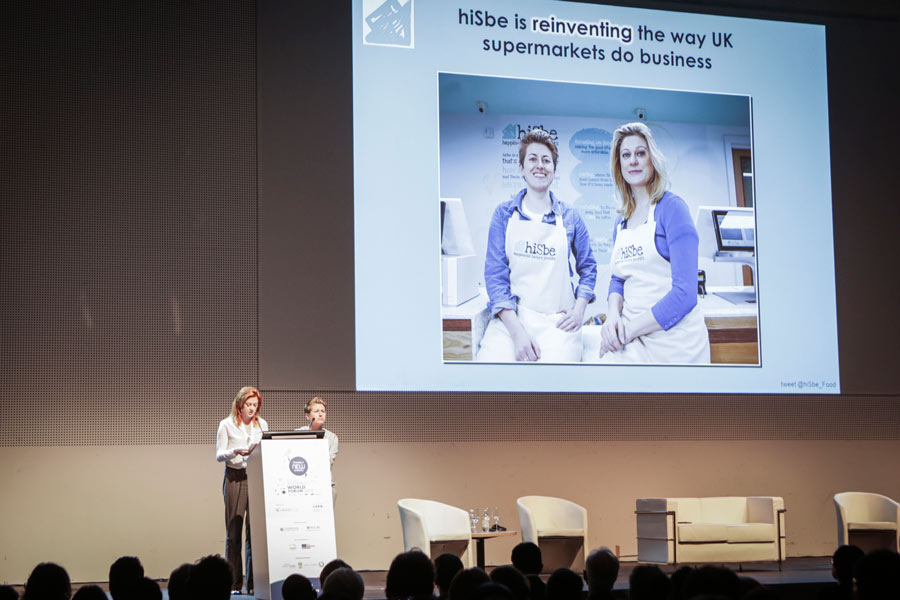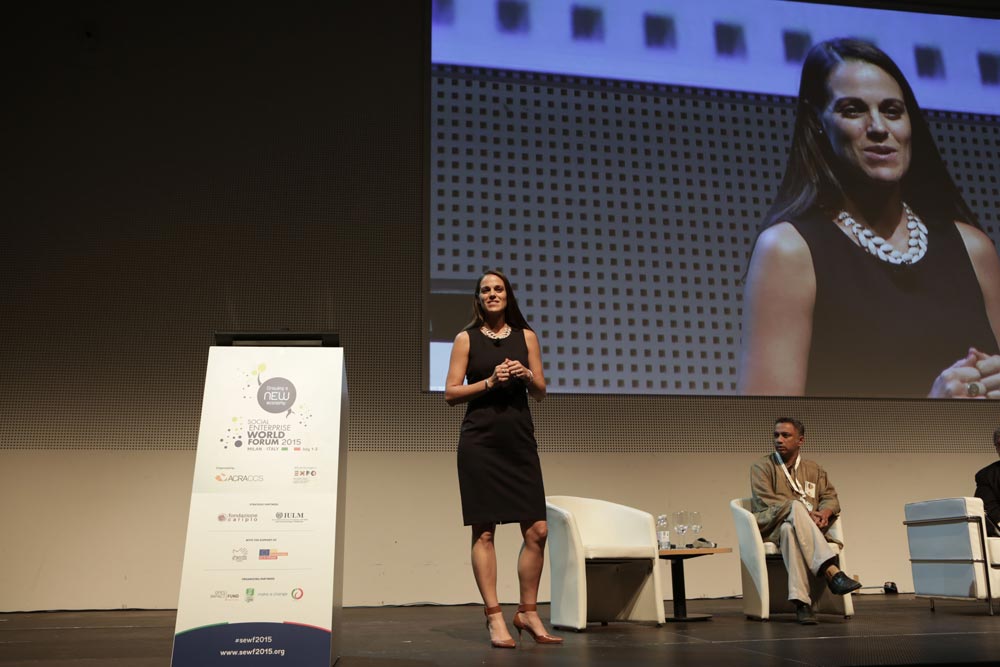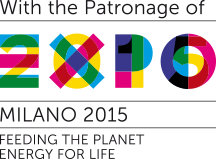The opening day of the Social Enterprise World Forum in Milan presented a fascinating array of the plucky, the ingenious and the inspiring.
The setting for the opening of the eighth instalment of the Social Enterprise World Forum (SEWF) took place in the frankly bizarre surrounds of the fashion capital’s Expo. Here, architects have been allowed to let their imagination run wild in trying to outdo each other by creating bonkers buildings for global nations.
Amongst the many ventures highlighted during the 2015 SEWF opening ceremony, two social enterprises were found to be fighting mafias of very different kinds. In Brighton, hiSbe (which stands for “how it should be”) has taken on the supermarket chains in creating a different kind of store in which to buy food. It has thought about all the things that the big chains do badly and tried to think of a better way. Hence “how it should be”.

Examples of hiSbe’s working practices include only stocking fish that are not on the MSC “fish to avoid list”, embracing seasonality so that food doesn’t have to rack up a carbon footprint travelling to store and paying employees a living wage. It is a supermarket with brains that also reckons on catering for all budgets, unlike another well known American import.
The revolutionary supermarket’s website is like a blueprint for the future of food shopping. Perhaps most refreshing of all, Ruth and Amy Anslow, two of the three founders, seemed genuinely excited to have a platform on which to share their big idea. They are new voices in the social enterprise conference merry go round and helped to freshen up proceedings.
Far more precarious than taking on the supermarkets is taking on the actual mafia, in this case the ‛Ndrangheta of Calabria’, whose revenue is reckoned to account for 3% of Italy’s GDP. In southern Italy their stranglehold means they can force down prices of produce, principally citrus fruits. Farmers there had been selling oranges to the ‘Ndrangheta for five cents a kilo.
Vincenzo Linarello of Gruppo Cooperativo GOEL spoke calmly but directly about the influence of social enterprises there that had rewarded those that took a stand against the Mafioso. Offering a minimum of 40 cents per kilo encouraged local people to take a stand; the wider social effect was courage from those in the community that no longer wanted only one way of prospering.

On a stiflingly hot day in Milan the hundreds of attendees were glad of the cool air conditioning in the darkness of the warehouse like venue. Lighting up the stage was a turn by Sophia Grinvalds from Afripads. Living in Uganda, she was shocked to find that one in 10 girls were skipping school during menstruation, missing up to 50 days of schooling a year.
The problem was lack of decent sanitary pads and worse, girls using rags, banana fibre and even leaves as a substitute were putting their health at risk. Afripads became the solution. A washable sanitary pad that was manufactured locally, it became popular with the local female community before word spread – now 600,000 women are users.
Social enterprise works best when it does good on many levels. In this case, as well as the benefits to their education (and ultimately Uganda’s economy, once these women graduated), local jobs were created and perhaps more importantly, dignity was restored. As they say in Milan, viva le imprese sociali!
Source Pioneer Post – Lee Mannion
Photo credit: Francesco Margutti
